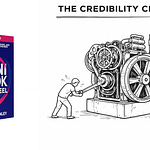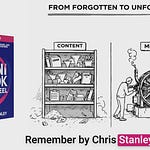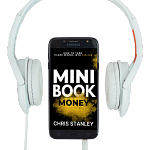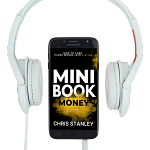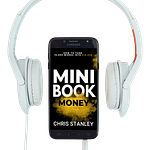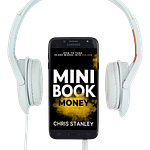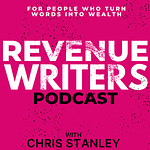Your subtitle is not the place to be clever.
It’s the place to get clear.
In this episode, Chris Stanley continues the Power Promise series by unpacking the “E” in POWER, Expectations, and how your subtitle sets the tone for your entire book.
You’ll learn:
Why the subtitle is more important than the title for nonfiction books
How to write a subtitle that removes confusion and invites action
Why clarity always beats clever in nonfiction
How to align your subtitle with the problem and solution your book promises
This episode will change how you think about titling forever and give you the confidence to write a subtitle that actually sells your book before you’ve written the first chapter.
TRANSCRIPT
All right. Welcome back. Revenue Writers To The Revenue Writers Podcast. Uh, we are continuing our Power Promise series. Uh, p in power is the problem that you solve. O is the offering of a solution. W is the words, particularly with your title and subtitle. And so we talked about the title of your book last time.
Let's talk about the subtitle now and, um. What we talked about with the title was that the title is there to hook the reader. It is your headline. It is there to drive curiosity, to get them interested. You think about Atomic Habits as a very famous book. You have no idea exactly what he's about to do, but you know, has something to do with habits, but you don't really know it's small habits.
Maybe you could. Uh, think through that enough. But in a quick glance, three to five seconds, you're not gonna figure out what that book is actually promising you yet, just by that title alone. Um, ask the book. Ask doesn't tell you what the book's about, just by saying Ask Blink doesn't tell you what it's about.
Margin doesn't tell you what it's about. They are just there, uh, to hook you. So the job then of the subtitle is to bring exact. Painful clarity. Okay? This is not a time to be clever. The titles where you should be clever. Don't be clever in your subtitle. That's a good rule. Okay? Clarity always beats clever, and especially when it comes to subtitles.
Uh, you look at the subtitles of those books I was mentioning, ask, uh, it's the counterintuitive online method to discover exactly what your customers wanna buy, do, do, do create a mass. Of raving fans and take any business to the next level. Okay? If you don't know what you're gonna get with that book, with that long of a subtitle, you're outta luck.
Okay? Blink the power of Thinking without Thinking. Oh, I know what this book's about now. Uh, margin, restoring, emotional, physical, financial, and time reserves to overloaded lives. So the subtitle is there to eliminate any questions that remain after your title. Okay, mini book marketing. I mean, is this marketing that's gonna help me, put me on the New York Times bestseller list?
What kind of marketing is this? And it tells you, Hey, how to sell your first 1000 books. I'm setting the expectation, I'm setting the expectation low compared to a lot of marketing books, because I think the biggest problem people face is, Hey, you don't even know how to move your first few books. And the secret is, if you can move a thousand, you can move 10,000.
But most people are overwhelmed and you're like, Hey, how to hit New York Times bestseller. They're like, ah, I can't handle that. So with a subtitle, you clarify and set with your words the expectation of the reader right up front. And that way you can fulfill your promise. And you know, as the author, as you're writing your book, am I actually fulfilling the promise?
That I made the reader. I know even if someone hates my book, mini book marketing, I know I 1000% fulfilled my promise to teach them how to sell 1000 books. And as long as I know that I'm confident in what I wrote. And so you need to choose a subtitle that clearly articulates what it's about, and it clearly articulates the promise that you're making.
Okay. Between the title and the subtitle, you're like most of the way there. Um, it, but all those are influenced by the first thing. Two things you figured out. What was the problem you're trying to solve and, oh, what's the offer of the solution? So embedded in my title and subtitle of many book Marketing, sell your first 1000 books, I am addressing the problem.
You don't know how to sell your books. Or I'm not selling books, and the offer of a solution is, Hey, many books and marketing, and I'll show you the solution with that. And so those two together are, the title and subtitle are influenced by the P and the O, the pa, uh, the Problem and Offer a Solution. So craft your title and subtitle.
I want to hear it. Email it to me, chris@chrisstanley.com. Uh, I hope you're enjoying these episodes and I hope it's helping you craft a powerful promise for your next book, for your next project. And I can't wait to hear what you, uh, think about it, leave a review wherever you listen to podcasts at. I really appreciate it.





